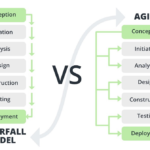Human Resources (HR) is an essential function in every organization, responsible for managing employee-related tasks such as recruitment, onboarding, training, payroll, benefits administration, and performance management. However, managing these tasks manually can be time-consuming, tedious, and prone to errors.
To overcome these challenges, businesses increasingly turn to HR software, which automates and streamlines HR processes, making them more efficient and effective. HR software comes in various types, each with different features and functionalities.
In this article, we will explore What is HR software, types, considerations, benefits, and challenges of HR software. By the end of this article, readers will better understand HR software and how it can help businesses optimize their HR functions.
Types of HR Software
HR software can be divided into several categories, depending on their functions, features, and deployment models. Here are some of the most common types of HR software:
Core HR Software
This type of software automates basic HR functions, such as employee data management, time and attendance tracking, and payroll processing. Core HR software is essential for businesses to manage their HR operations effectively.
Talent Management Software
Talent management software is designed to manage the employee lifecycle, from recruiting and onboarding to performance management and career development. It can help businesses attract, retain, and develop talent by providing recruiting, learning management, and succession planning tools.
HR Analytics Software
HR analytics software provides insights into employee data, such as turnover rates, employee engagement, and performance metrics. It can help businesses make data-driven decisions about their HR strategies and operations.
HR Service Delivery Software
HR service delivery software helps businesses provide HR services to employees, such as self-service portals for accessing HR information, submitting requests, and managing benefits enrollment.
Considerations for Choosing HR Software
When selecting HR software, there are several considerations that businesses should take into account:
Business Needs
The first consideration is determining what HR processes need to be automated and streamlined. Identifying the specific features and functionality required to meet the business needs and goals is essential.
Scalability
As the business grows, so does the need for HR software to handle an increased volume of employees and HR functions. It’s essential to choose HR software that can scale with the business and adapt to its changing needs.
Integration
HR software needs to integrate with other business systems, such as payroll, accounting, and benefits administration, to ensure smooth data exchange and eliminate data silos.
Security
HR software contains sensitive employee data, so choosing a solution that provides robust security features, such as encryption, access controls, and data backups, is crucial.
User Experience
HR software should be easy to use and navigate for HR professionals and employees. It should have an intuitive interface, customizable workflows, and self-service capabilities.
Benefits of HR Software
HR software offers several benefits to businesses, such as:
Time and Cost Savings
HR software automates time-consuming tasks such as data entry, paperwork, and compliance tracking. It can save businesses time and reduce the costs associated with manual HR processes.
Improved Accuracy and Compliance
HR software can reduce errors and ensure compliance with employment laws and regulations. It can help businesses avoid penalties, fines, and legal issues.
Enhanced Employee Experience
HR software can improve the employee experience by providing self-service portals, real-time feedback, and personalized learning and development opportunities.
Data-Driven Decision Making
HR software provides insights into employee data and performance metrics, allowing businesses to make data-driven decisions about their HR strategies and operations.
Increased Efficiency and Productivity
HR software can streamline HR processes and workflows, allowing HR professionals to focus on strategic tasks and initiatives that drive business growth.
Challenges of HR Software
While HR software offers many benefits, it also poses several challenges for businesses, such as:
Integration Issues
HR software must integrate with other business systems, which can be complex and time-consuming. Integration issues can cause data inconsistencies, errors, and delays.
Data Privacy and Security Risks
HR software contains sensitive employee data, which can be vulnerable to cyber threats, data breaches, and unauthorized access. Implementing robust security measures and protocols to mitigate these risks is essential.
Customization and Configuration
HR software must be customized and configured to meet the business’s specific needs. This can be challenging, especially for businesses with complex HR processes and workflows.
Training and Adoption
HR software requires training and adoption by HR professionals and employees. Ensuring that all users are familiar with and use the software effectively can take time and effort.
Cost and ROI
HR software can be expensive, especially for businesses with a limited budget. It’s essential to consider the cost of implementation, customization, and maintenance and the expected return on investment (ROI).
Conclusion
HR software is a powerful tool that can automate and streamline HR processes, improve data accuracy and compliance, enhance the employee experience, and drive business growth. With the right HR software, businesses can optimize their HR functions and achieve their goals efficiently and effectively.








